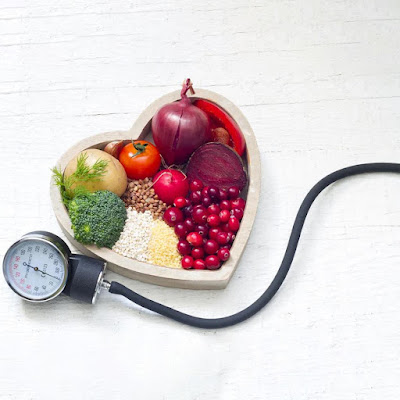Hypertension, also known as high blood pressure, is a common health condition affecting millions worldwide. It is often called the "silent killer" since it has no obvious symptoms but can lead to serious complications such as heart disease, stroke, and kidney failure. Blood Pressure Medications or antihypertensive drugs are used to lower high blood pressure. Several classes of blood pressure medications are available, each with its own mechanism of action and side effects.
Diuretics:
Diuretics are medications that help your body get rid of excess water and salt. They work by increasing urine output, which decreases the amount of fluid in your blood vessels, thereby reducing blood pressure. Types of diuretics include thiazide diuretics, loop diuretics, and potassium-sparing diuretics.
ACE Inhibitors:
ACE inhibitors block the production of angiotensin-converting enzyme (ACE), a substance that narrows blood vessels and raises blood pressure. By blocking ACE, these medications relax blood vessels, improving blood flow and reducing blood pressure. Examples of ACE inhibitors include lisinopril, enalapril, and ramipril.
Calcium Channel Blockers:
Calcium channel blockers prevent calcium from entering cells in the heart and blood vessel walls. This reduces muscle contraction and relaxes blood vessels, lowering blood pressure. Some examples of this class of Blood Pressure Medications include amlodipine, diltiazem, and verapamil.
Beta-blockers:
Beta-blockers block the effects of adrenaline on the heart and blood vessels. This slows the heart rate and relaxes blood vessels, reducing blood pressure. Examples of beta-blockers include atenolol, metoprolol, and propranolol.
Angiotensin Receptor Blockers (ARBs)
ARBs block the binding of angiotensin II to its receptors, which reduces the narrowing of blood vessels and decreases blood pressure. Examples of ARBs include losartan, valsartan, and irbesartan.
Herbal Medicine for Blood Pressure:
Herbal medicine for blood pressure is a natural alternative to traditional blood pressure medications. Several herbs have been used for centuries to treat hypertension. Although there isn't enough scientific evidence to support Herbal Medicine for Blood Pressure, many people have found them helpful in managing their high blood pressure. Here are some commonly used herbal medicines for blood pressure control:
Garlic:
Garlic has been shown to reduce blood pressure in several studies. It contains allicin, which helps relax blood vessels and improve blood flow. Garlic supplements are available in capsule form or can be added to your diet.
Hawthorn:
Hawthorn is a shrub used in traditional medicine for centuries. Its berries and leaves are rich in flavonoids and other compounds that help dilate blood vessels and lower blood pressure. Hawthorn extract is available in tablet or liquid form.
Hibiscus:
Hibiscus is a flowering plant shown to lower blood pressure in some studies. It contains compounds that act as diuretics, which help remove excess salt and water from the body. Hibiscus tea is an easy way to incorporate this herb into your diet.
Ginger:
Ginger is a spice with anti-inflammatory properties that can help improve circulation and lower blood pressure. It can be consumed fresh, dried or in supplement form.
Cinnamon:
Cinnamon is a spice shown to lower blood sugar levels and improves insulin sensitivity in some studies. It also helps improve blood pressure by reducing inflammation and improving circulation. Cinnamon can be added to your diet as a spice or supplement.
High Blood Pressure Treatment:
High blood pressure (hypertension) is a chronic condition that requires lifelong management. Along with High Blood Pressure Treatment, medications, several lifestyle changes and self-care practices can help manage hypertension.
Diet:
A healthy diet can go a long way in managing high blood pressure. A diet low in salt and high in fruits, vegetables, whole grains, and lean proteins is recommended.
Exercise:
Weight Management:
Weight Management Being overweight or obese increases the risk of developing high blood pressure. Losing weight through a healthy diet and exercise can help manage hypertension.
Stress Reduction:
Techniques Stress can increase blood pressure levels. Practising stress reduction techniques such as meditation, yoga, or deep breathing exercises can help manage hypertension.
Quit Smoking:
Smoking damages blood vessels and increases the risk of hypertension. Quitting smoking can improve blood pressure levels and overall health.
Blood Pressure Control:
Blood pressure control refers to managing blood pressure levels within a normal range. The American Heart Association defines normal blood pressure as less than 120/80 mmHg. Here are some ways to Blood Pressure Control levels:
Self-monitoring:
Regularly monitoring blood pressure at home can help patients detect and manage hypertension early.
Medication:
Adherence Taking medication as prescribed by a healthcare provider is crucial in managing high blood pressure. Skipping doses or not taking medications as directed can lead to uncontrolled hypertension and serious complications.
Lifestyle Modifications:
Healthy lifestyle changes such as maintaining a healthy diet, exercising regularly, managing stress, and quitting smoking can help manage blood pressure levels.
Managing Co-existing:
Conditions Certain health conditions, such as diabetes and kidney disease, can increase the risk of hypertension. Proper management of these conditions can help prevent or manage hypertension.
Regular Medical Check-ups:
Regular Medical Check-ups with a healthcare provider can help detect hypertension early and prevent serious complications. Blood pressure measurements should be taken during every medical visit.
Conclusion:
Hypertension is a common health condition that requires lifelong management. Treatment options include medications and natural remedies such as herbal Medicine for Stomach Pain. Lifestyle modifications such as exercise, weight management, and stress reduction techniques can also help manage hypertension. Self-monitoring, medication adherence, and regular medical check-ups are essential in controlling blood pressure levels.

Comments
Post a Comment